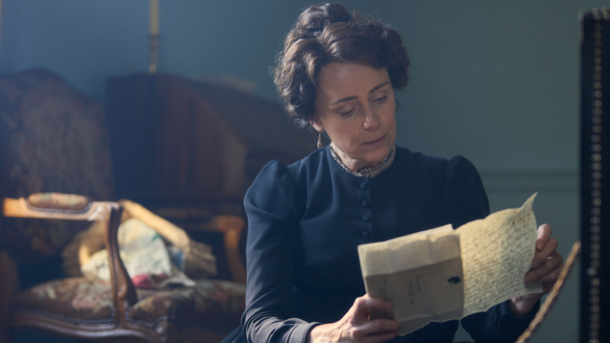This New BBC Show With 90% on RT Is the Best Project About Jane Austen in Years

This series reveals the personality of the great writer through the eyes of her older sister.
2025 will mark the 250th anniversary of the birth of Jane Austen. One of the first projects honoring this date is the BBC miniseries Miss Austen.
Contrary to expectations, it is dedicated not so much to Jane as to her older sister Cassandra, about whose life not so much is known.
Perhaps the most important fact from her biography is that she burned almost all of her correspondence with her sister, about 3,000 letters, which could have given historians and biographers valuable information about the writer's life.
What Is Miss Austen About?
The story takes place in 1830, more than ten years after Jane Austen's death. Cassandra goes to the Fowle family, when she learns that the head of the family is dying and that his youngest daughter, Isabella, may be left without a roof over her head.
In fact, Cassandra is driven by more than a desire to help: Isabelle's late mother was a close friend of the Austen sisters, and there may be letters left in the house that Cassandra is determined to retrieve.

Not only does Cassandra want to find the correspondence, but so does her sister-in-law, Mary, who wants to use Jane's letters to complete the biography of her husband, James Austen.
Miss Austen Focuses on the Mystery of the Burned Letters
The circumstances of what happened are not exactly known, and the contents of the destroyed letters can only be guessed at, leaving Jane Austen fans free to interpret them as they see fit.
It is generally accepted that Cassandra wanted to protect her sister's right to a private life and to protect her honor and reputation. But no one knows how the relationship between the two sisters actually developed and what secrets the fire hid.
The authors of the new series offer viewers their own version of what happened – and this version is touching and tragic.
Miss Austen Inherits the Light but Thoughtful Spirit of the Writer's Works
The distance between the series and real events plays into the hands of Miss Austen, allowing it to be perceived as an independent work of art, rather than a project with documentary aspirations.
The characters and plots created by the authors are deep and at the same time light in the Austen style, capable of finding a place for irony, love and sincerity in everyday life.
The Series Shows Cassandra From a New Angle
Cassandra, who is sometimes accused of one of the main acts of literary vandalism, does not look like an antagonist.
Over the course of four episodes, it is impossible not to be touched by the way a woman who dedicated her life to serving her loved ones tries to protect her younger sister even after her death.

The burned correspondence is transformed from a destructive act into the most sincere expression of love and devotion.
